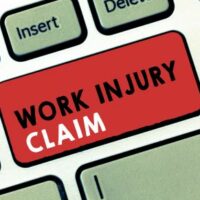Workers’ Compensation For Amputation Injuries

Losing a finger, thumb, hand, toe, foot, or limb on the job is a devastating tragedy that no sum of money can repair. An amputation injury is to lose a part of yourself, both literally and figuratively—it can be hard to return to normal life and find happiness after losing a body part, though it is, of course, possible with the right support system. This support system should include the financial and medical benefits awarded to you by your employer in the form of workers’ compensation. Wage replacement benefits and medical care are essential in serious work injuries, such as amputation accidents. If you have been seriously wounded in a work accident and you have suffered a loss of any body part, you need to talk to an attorney immediately about your options for compensation.
Amputations that Automatically Qualify an Employee As Permanently and Totally Disabled
When it comes to compensation for work injuries, there are four classifications: temporary partial disability, temporary total disability, permanent partial disability, and permanent total disability. Permanent total disability is the most severe, and therefore enables the largest degree of compensation. Under Florida statute 440.15, the following amputation injuries automatically constitute permanent, total disability unless an employer proves that the worker can perform sedentary employment within 50 miles of their residence:
- Arm;
- Hand;
- Foot;
- Leg; or
- Injury that causes the effective loss of use of that appendage (for example, a hand may not be fully severed, but if specific tendons are lacerated, it may be rendered paralyzed or only semi functional).
Amputation survivors can also be heavily compensated for lost fingers, toes, and for facial disfigurement, particularly when the loss of the specific body part interferes with their ability to work.
Amputation Hazards at Work
According to the Occupational Safety and Health Administration (OSHA), the following types of mechanical components are a risk for workers:
- The area of a machine where it performs work on the material;
- Power-transmission apparatuses such as flywheels, pulleys, chains, spindles, gears, belts, and more;
- Parts of machines that move during operation and create pinch points such as rotating, reciprocating, cutting, punching, shearing, and more.
In addition to simply using a machine as intended, workers risk amputation during set-up of machines, cleaning, lubricating, and clearing any jams that stop the machine. In order to protect workers, the machines should be properly safeguarded with guards and devices that can stop the machine if a body part is in the way of any part of the machine.
Call a Workers’ Compensation Attorney Today
Suffering an amputation injury means you have to find a new normal for the rest of your life. In addition to the physical changes you have to contend with, there is an emotional toll to manage. The South Florida workers’ compensation attorneys at Law Offices of David M. Benenfeld, P.A understand how traumatic an amputation injury is and we want to ensure you get the best possible outcome for compensation through workers’ compensation to ease your burden. Call us today at 954-677-0155 to schedule a free consultation.
Resource:
osha.gov/sites/default/files/publications/amputation-factsheet.pdf

